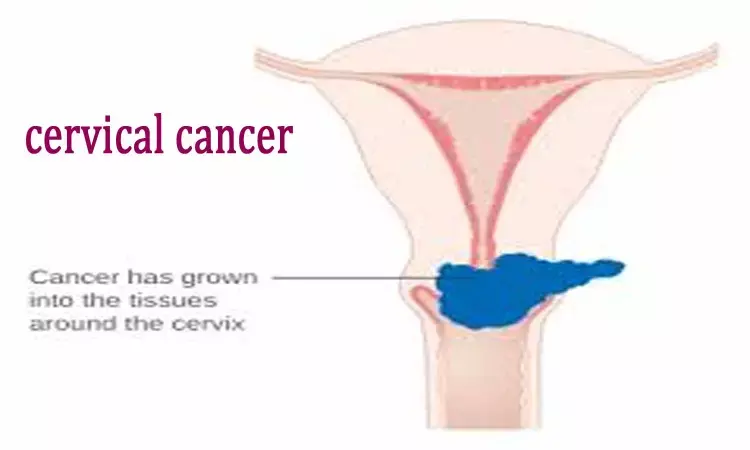- Home
- Medical news & Guidelines
- Anesthesiology
- Cardiology and CTVS
- Critical Care
- Dentistry
- Dermatology
- Diabetes and Endocrinology
- ENT
- Gastroenterology
- Medicine
- Nephrology
- Neurology
- Obstretics-Gynaecology
- Oncology
- Ophthalmology
- Orthopaedics
- Pediatrics-Neonatology
- Psychiatry
- Pulmonology
- Radiology
- Surgery
- Urology
- Laboratory Medicine
- Diet
- Nursing
- Paramedical
- Physiotherapy
- Health news
- Fact Check
- Bone Health Fact Check
- Brain Health Fact Check
- Cancer Related Fact Check
- Child Care Fact Check
- Dental and oral health fact check
- Diabetes and metabolic health fact check
- Diet and Nutrition Fact Check
- Eye and ENT Care Fact Check
- Fitness fact check
- Gut health fact check
- Heart health fact check
- Kidney health fact check
- Medical education fact check
- Men's health fact check
- Respiratory fact check
- Skin and hair care fact check
- Vaccine and Immunization fact check
- Women's health fact check
- AYUSH
- State News
- Andaman and Nicobar Islands
- Andhra Pradesh
- Arunachal Pradesh
- Assam
- Bihar
- Chandigarh
- Chattisgarh
- Dadra and Nagar Haveli
- Daman and Diu
- Delhi
- Goa
- Gujarat
- Haryana
- Himachal Pradesh
- Jammu & Kashmir
- Jharkhand
- Karnataka
- Kerala
- Ladakh
- Lakshadweep
- Madhya Pradesh
- Maharashtra
- Manipur
- Meghalaya
- Mizoram
- Nagaland
- Odisha
- Puducherry
- Punjab
- Rajasthan
- Sikkim
- Tamil Nadu
- Telangana
- Tripura
- Uttar Pradesh
- Uttrakhand
- West Bengal
- Medical Education
- Industry
Open surgery superior to minimally invasive surgery for early cervical cancer

NEW YORK, NY -- A study led by researchers at Columbia University Irving Medical Center confirms that minimally invasive surgery for early-stage cervical cancer is linked to higher rates of recurrence and death compared with open surgery.
The study was published online today in JAMA Oncology.
Until the early 1990s, most women with early-stage cervical cancer underwent open radical hysterectomy (removal of the uterus, as well as some surrounding tissue). When a laparoscopic, or minimally invasive, approach to radical hysterectomy was introduced in 1992, it found favor among many oncological surgeons and eventually became a standard surgical treatment. Though minimally invasive surgery leads to fewer complications and a shorter recovery than open surgery, data comparing long-term outcomes of the two approaches have been limited.
A 2018 epidemiological study also led by Columbia, and published in the New England Journal of Medicine, found the four-year mortality rate among women with cervical cancer who had minimally invasive surgery was around 9% compared with around 5% for those who had open surgery. The researchers also found that survival among women undergoing cervical cancer surgery had declined since the adoption of minimally invasive techniques.
The new JAMA Oncology study was a meta-analysis of 15 observational studies including 9,499 women with cervical cancer. Of those who had minimally invasive radical hysterectomy, 530 had a recurrence and 451 died. The combined risk of recurrence or death was 71% higher for those who had minimally invasive surgery versus open surgery, and mortality risk was 56% higher. The results were similar for those who had robot-assisted minimally invasive surgery.
"It is important to keep in mind that there may be more differences between minimally invasive and open procedures besides the size of the incisions," says the study's lead author, Alexander Melamed, MD, MPH, assistant professor of obstetrics and gynecology at Columbia University Vagelos College of Physicians and Surgeons and a member of Columbia's Herbert Irving Comprehensive Cancer Center. "In the case of radical hysterectomy, these are two different operations, albeit with the same goal. Subtle technical differences may affect the oncologic efficacy of these procedures. We just don't know yet."
According to Melamed, some of the early studies were likely biased toward minimally invasive radical hysterectomy because of confounding factors that were not accounted for by the study authors. Those treated with minimally invasive surgery, for example, were more likely to be white women, to be from a higher socioeconomic class, to have private health insurance, and to have smaller, lower-grade tumors--all of which can contribute to a better prognosis. The JAMA Oncology meta-analysis only included studies that had attempted to account for some of these confounding factors.
"Since the publication of the 2018 studies," says Melamed, "there has been a lot of hand-wringing and debate. I hope that this new meta-analysis will help clinicians and patients understand that the available evidence strongly suggests that the harm of minimally invasive surgery for cervical cancer outweighs the benefits. A number of medical centers, in fact, no longer even offer the option of minimally invasive radical hysterectomy for early-stage cervical cancer."
"If there is a larger lesson to be learned," he adds, "it is that we should never take the status quo for granted. Conventional wisdom and tradition need to be constantly revisited."
For more details click on the link: http://dx.doi.org/10.1001/jamaoncol.2020.1694
Hina Zahid Joined Medical Dialogue in 2017 with a passion to work as a Reporter. She coordinates with various national and international journals and association and covers all the stories related to Medical guidelines, Medical Journals, rare medical surgeries as well as all the updates in the medical field. Email: editorial@medicaldialogues.in. Contact no. 011-43720751
Dr Kamal Kant Kohli-MBBS, DTCD- a chest specialist with more than 30 years of practice and a flair for writing clinical articles, Dr Kamal Kant Kohli joined Medical Dialogues as a Chief Editor of Medical News. Besides writing articles, as an editor, he proofreads and verifies all the medical content published on Medical Dialogues including those coming from journals, studies,medical conferences,guidelines etc. Email: drkohli@medicaldialogues.in. Contact no. 011-43720751


